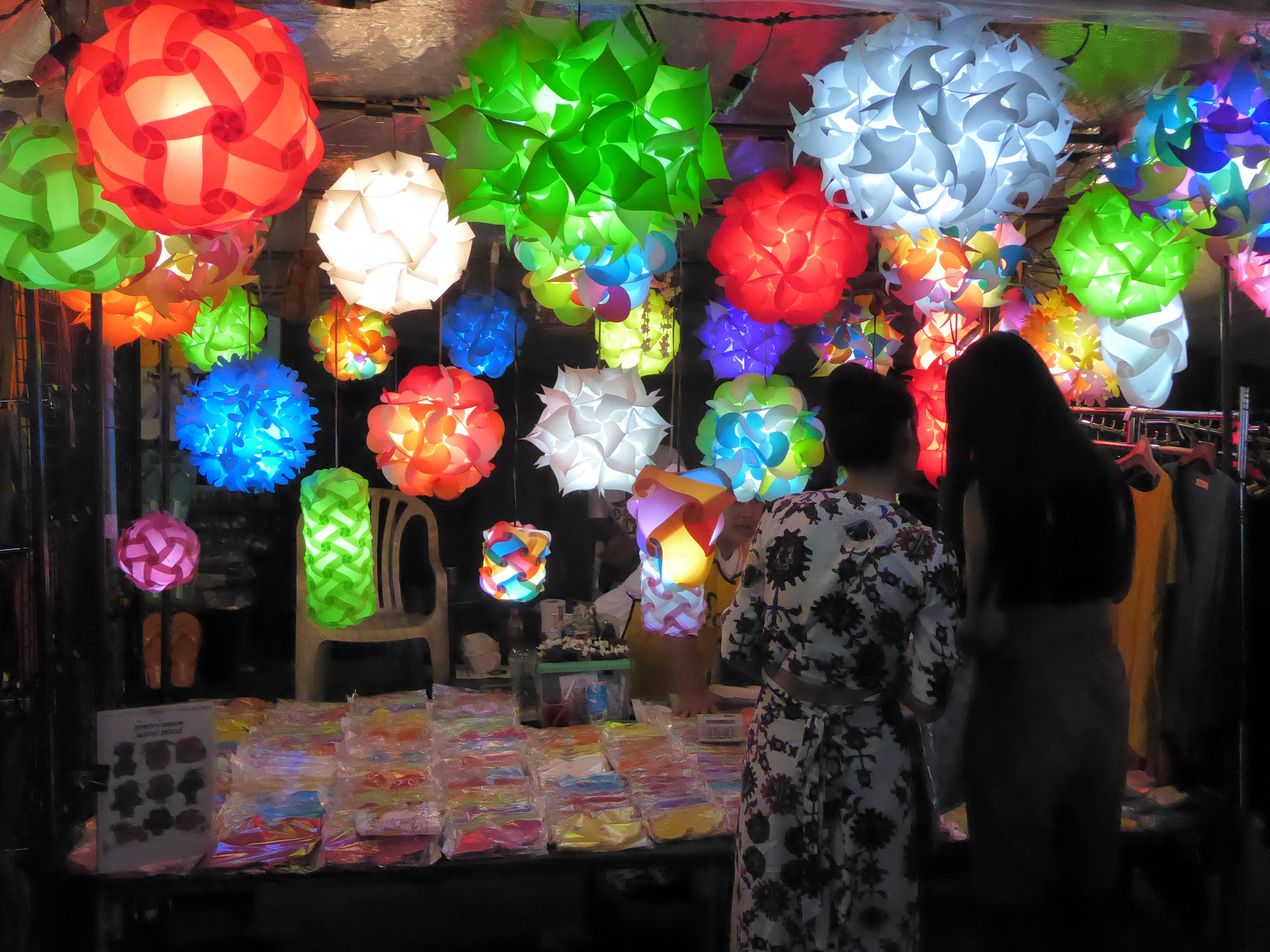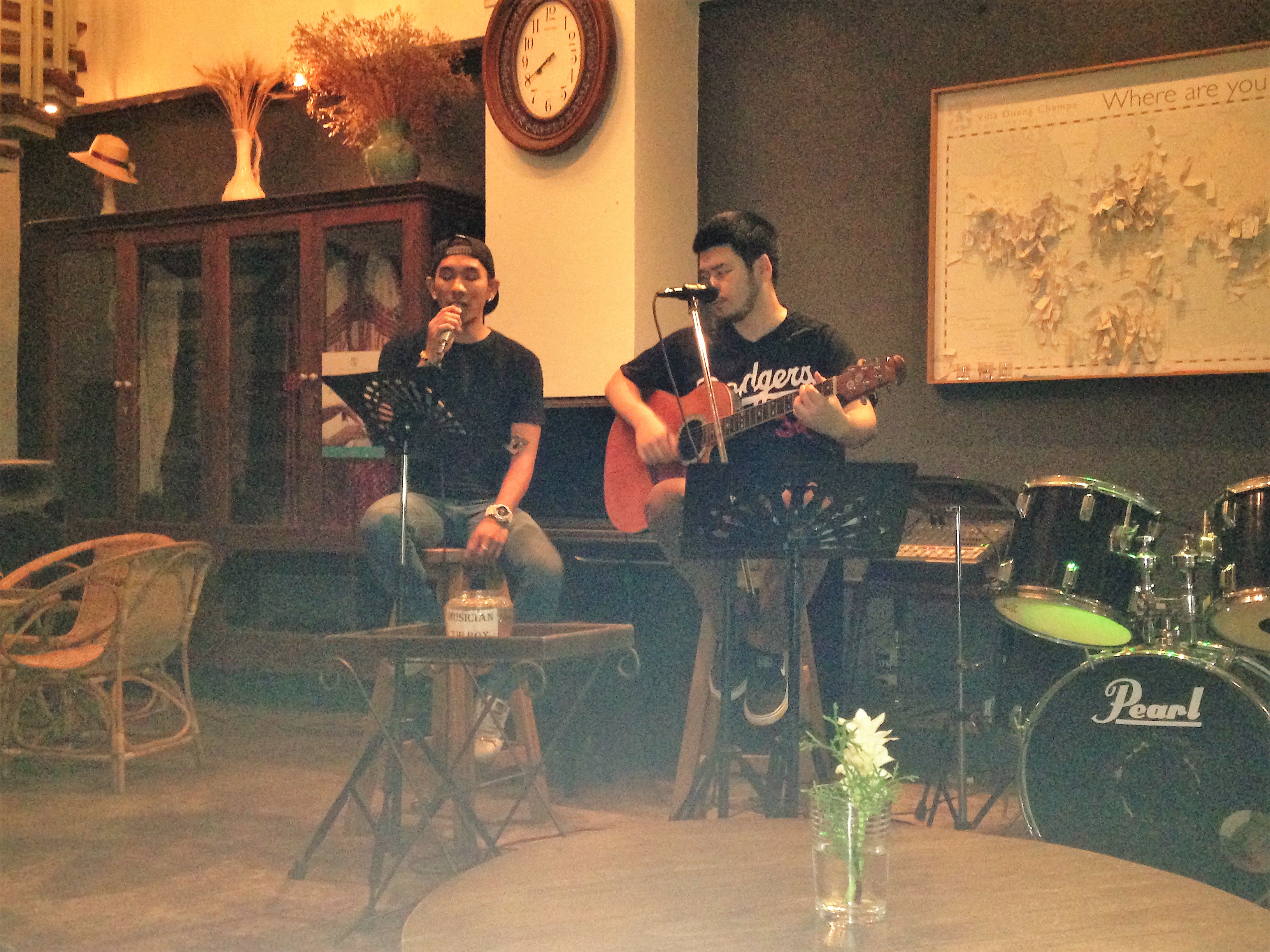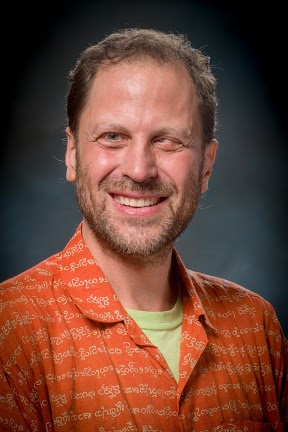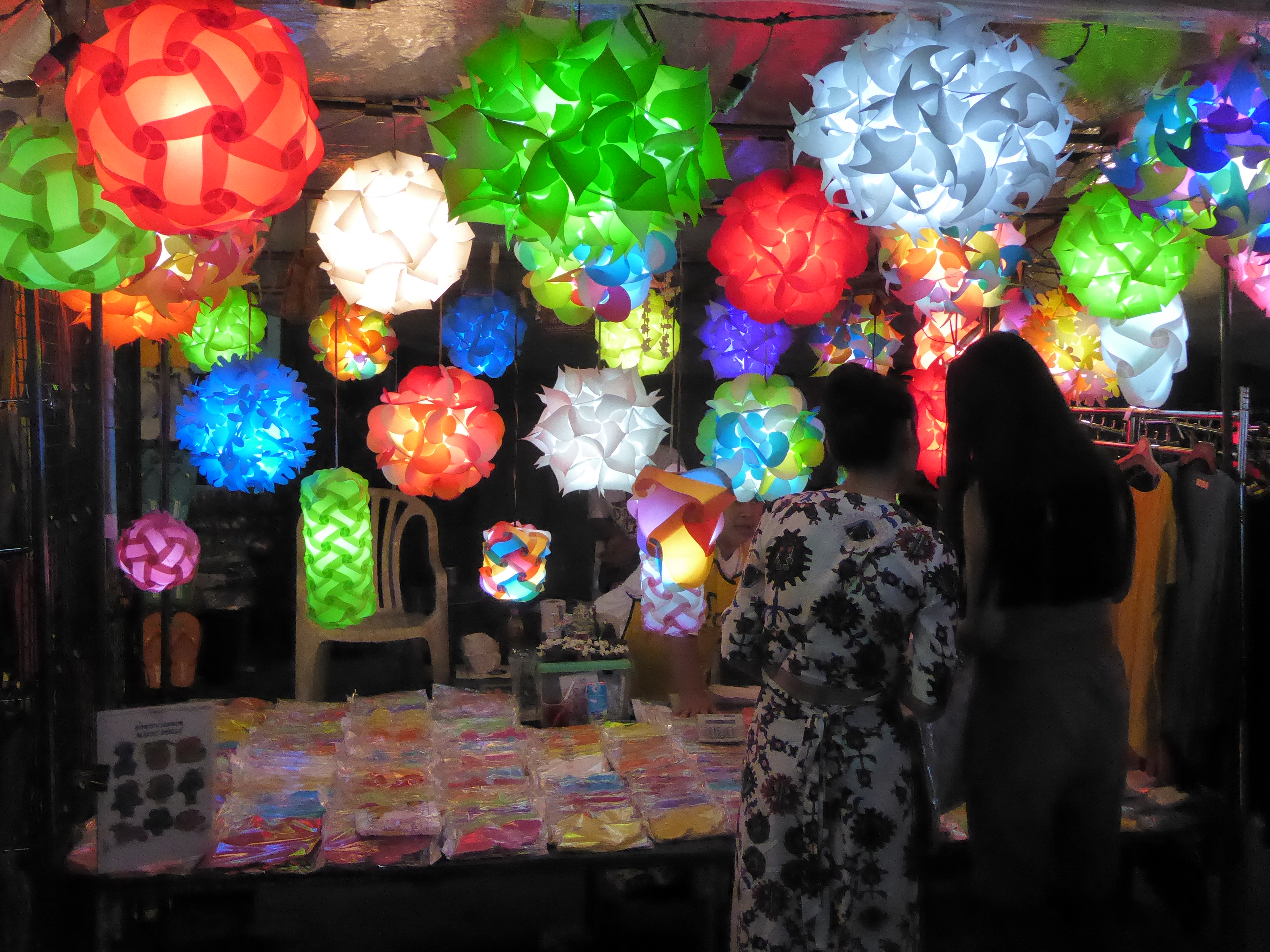
I stepped out of the stream of market-goers on Rajdamnern, the central east-west street of the Old City of Chiang Mai, Thailand closed to traffic every Sunday evening, to have a cold coconut in Villa Duang Champa, a lovely open-air restaurant and hotel.
I was listening to two Thai guys play lovely Spanish-style guitar instrumentals, while gongoozling the market and other activities going on, as they will, with or without us. I was actually wondering why these two talented musicians even had microphones, given that they hadn’t sung or said anything besides mumbling khap khun kraap, thank you in Thai, when all of a sudden, they started singing Hava Nagila!

Although the international patrons seemed to enjoy it as much as their other songs from the genre of world music, I don’t think the mix of Thais and tourists from around the globe had any idea what this Hebrew song was. But I recognize how often that is the case. What did I know of most of the songs they had sung before and after it? How many words do I hear in Thai and yet still don’t recognize? Indeed, there are so many things in my own language and cultures I’m unaware of or, worse, think I am aware of, yet simply misunderstand. I don’t even know anything about the song Hava Nagila, except that I’ve joyously butchered its words and corybantically danced to it a great many times at Jewish parties.
Leaving, I spilled out onto the street, surrounded by shoppers unaware of my realization that every tchotche represents a cultural miracle, that every treasure is really a treasure chest. And now I know the meaning of Hava Nagila, so, as the song suggests, let us be glad and arise with a joyful heart!
Dan Brook, PhD teaches sociology at San Jose State University, from where he organizes the annual Hands on Thailand (HoT) program. Dan has free ebooks on Smashwords.


